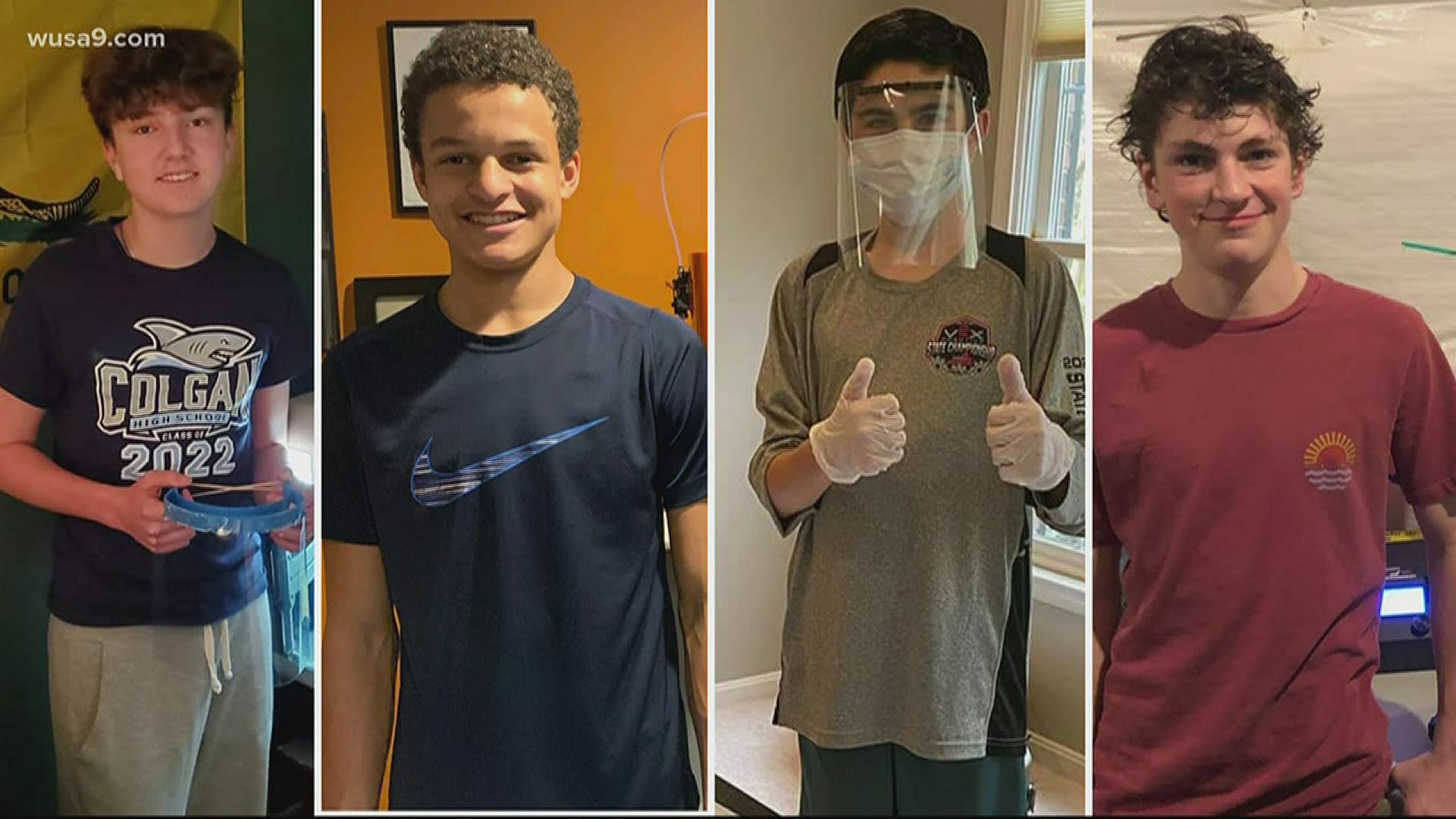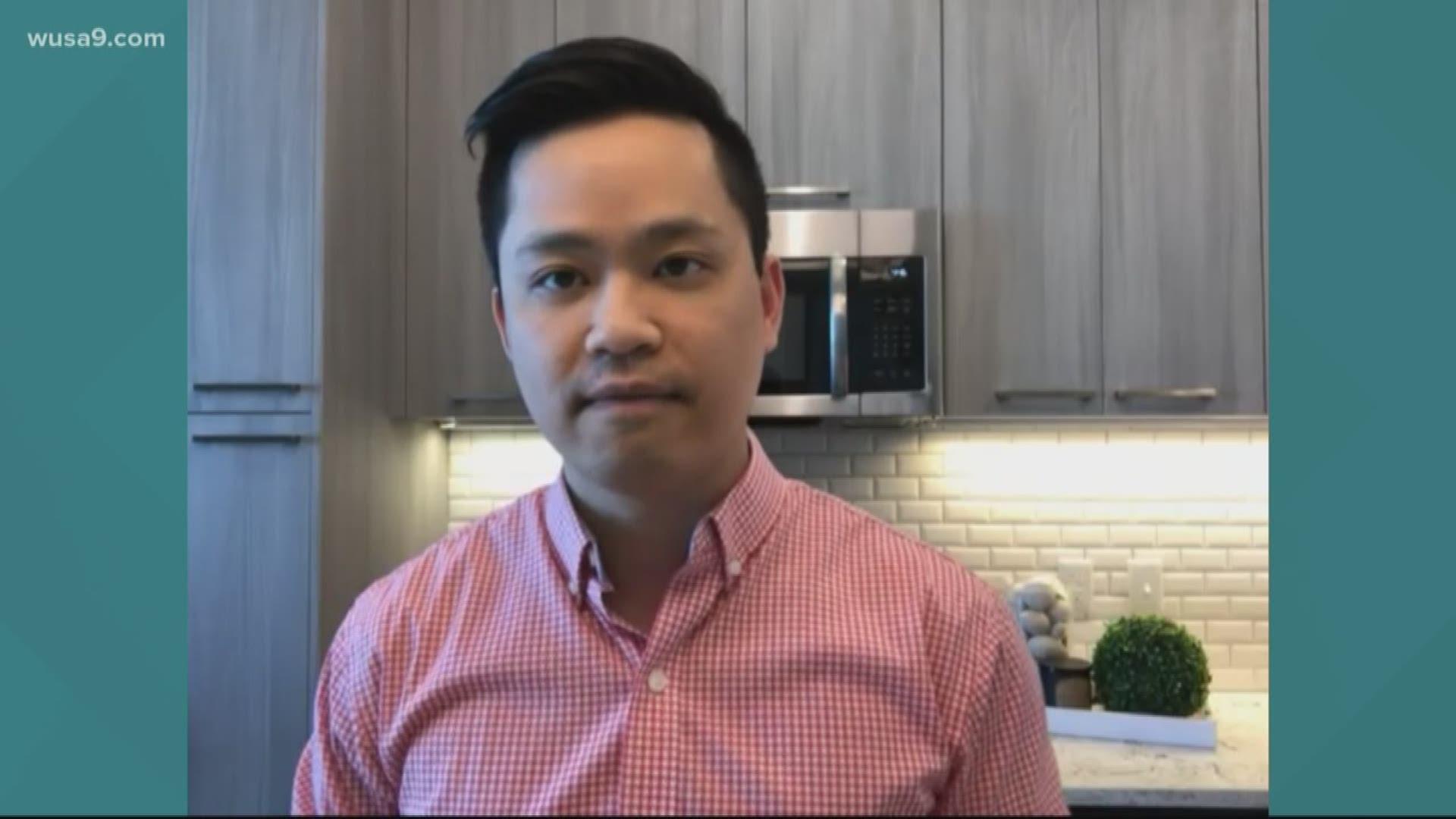MANASSAS, Va. — This virus has hit us hard, but it has also brought out the best in so many of us.
A group of high school students in Prince William County heard a plea for protective gear for hospital workers and harnessed their technical know-how to make a difference.
"My printer hasn't stopped printing for like a week now, at least," 16-year-old Max Lawson said. "And I think we're actually approaching on delivering about 70 of these."
Max said he first got the idea to use his 3D printer to create plastic face shields from plastic page sleeves while thinking about his friends in the medical field. But then his mom took a call from a friend who helps treat COVID-19 patients at Sentera Northern Virginia Medical Center.
"I called them and said, can you guys make a face shield -- is it possible?" Dr. Babur Lateef, an ophthalmologist and chair of the Prince William County School Board, asked.
Lateef knew the boys loved 3D printing.
"By six o'clock, they had a prototype," Lateef said.
He desperately needed face shields to protect his staff and his colleagues at the hospital.
"Folks, they're scared," Lateef said. "Everybody is scared of this."
Max's mom was all in. The health care workers at Sentera had saved her life nearly a decade ago, and gave her a chance to watch Max grow up.
"As soon as he mentioned Sentera, I got very emotional," Jessica Lawson said. "I might tear up here, because 9 years ago, I was treated at Sentera for papillary thyroid cancer."
Max recruited three of his buddies.
"It may seem like a lot of work, but we have nothing to do," 16-year-old Ethan Carr said.
They've now printed and delivered dozens of clear plastic face shields to protect the doctors and nurses who are trying to save the lives of COVID-19 patients. They're producing about a dozen a day, and delivering them three times a week.
"It's always great to see like the look of appreciation on the people's faces when we deliver the masks," Max said. "It's just great to see."
Dr. Lateef thinks the face shields have saved some of his co-workers from contracting the disease. Up until he got them, he was working with patients with just a mask, glove and gowns.
He said the teens' face shields are better than the ones he finally got delivered from China.
"The one the boy's made, it's fantastic," Lateef said while putting it on. "It goes on, and it's extremely comfortable."
Then he put on one of the shields he bought, which was less sturdy, covered less of his face, and was less transparent.
"It's not as comfortable," he said. "Theirs is better."
The teens may not be in school, but they're learning to save lives.
They have set up a GoFundMe to help pay for raw materials.


